Dire Dawa Launches SUNCASA Urban Tree Planting Program
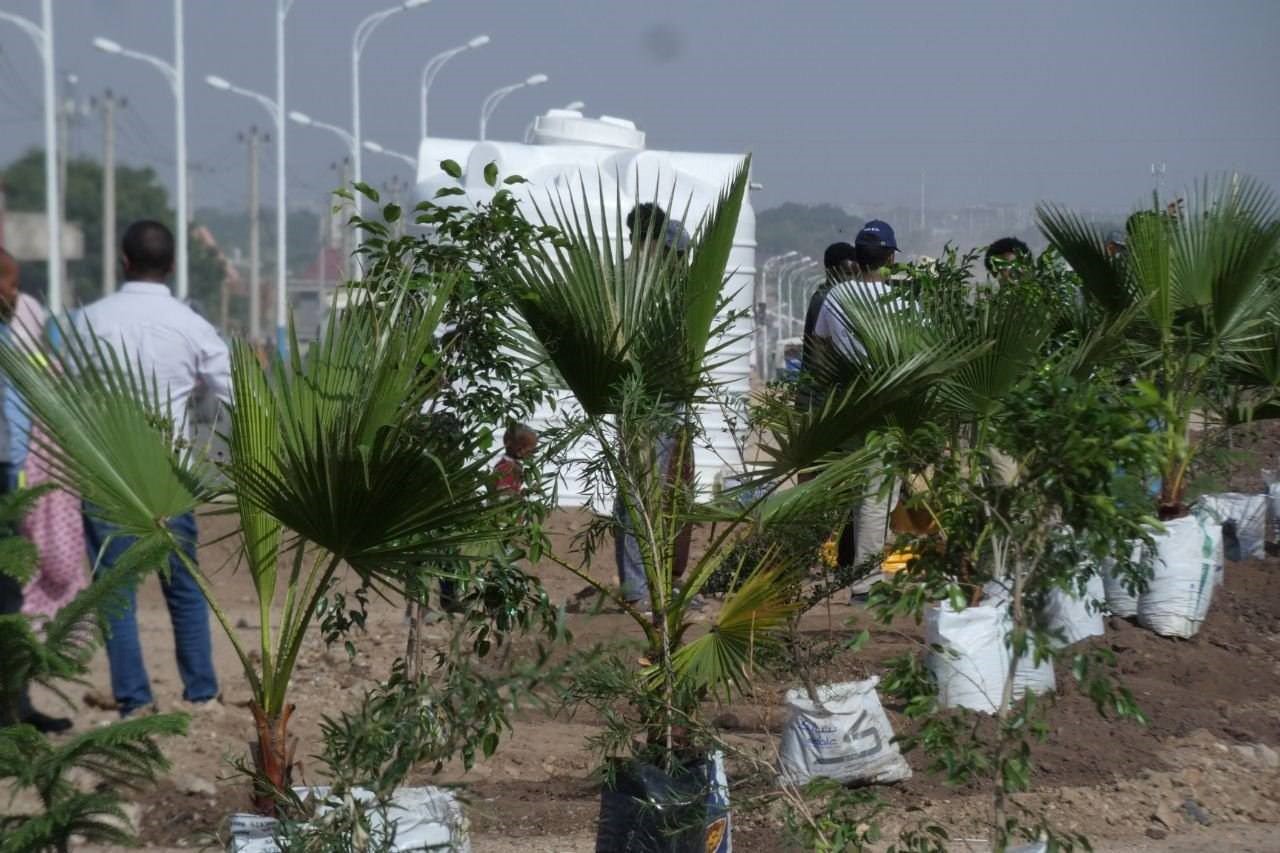
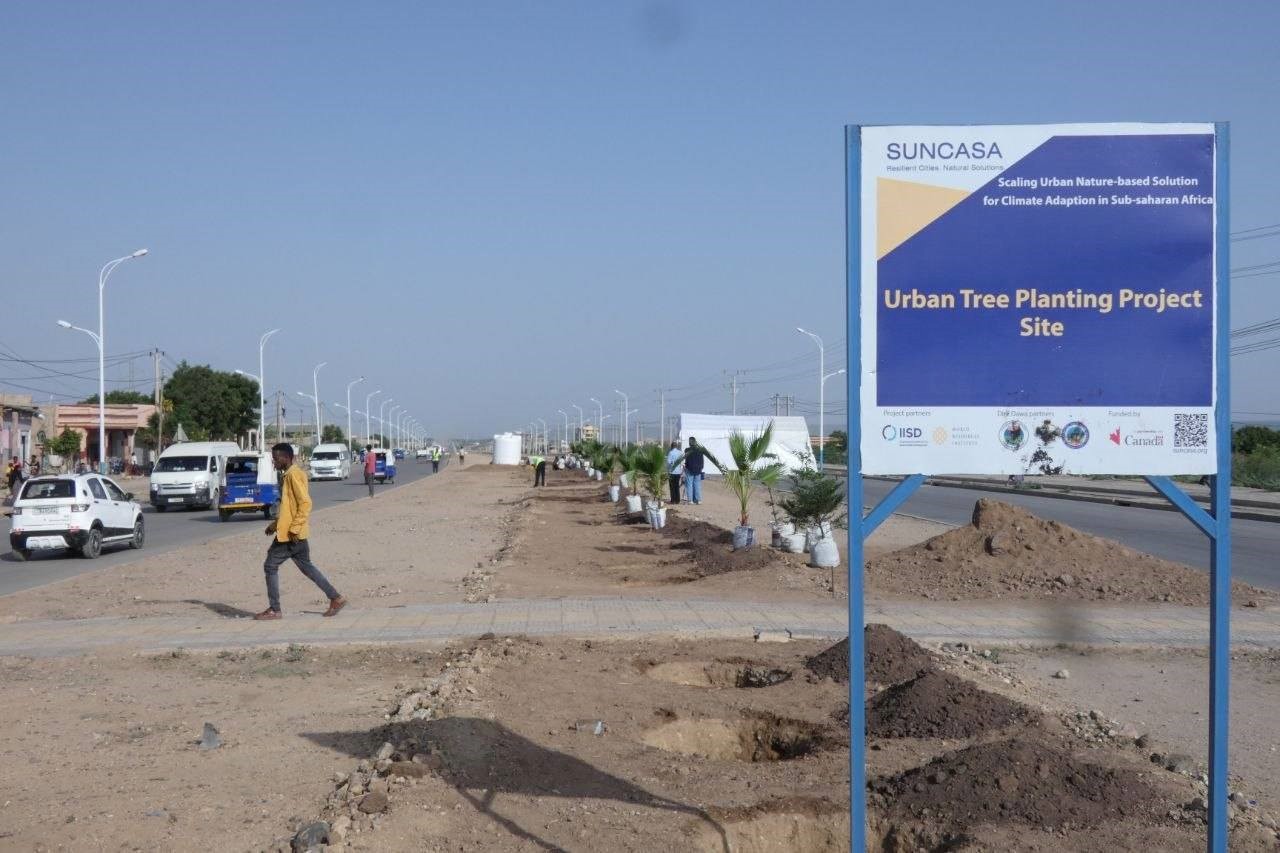
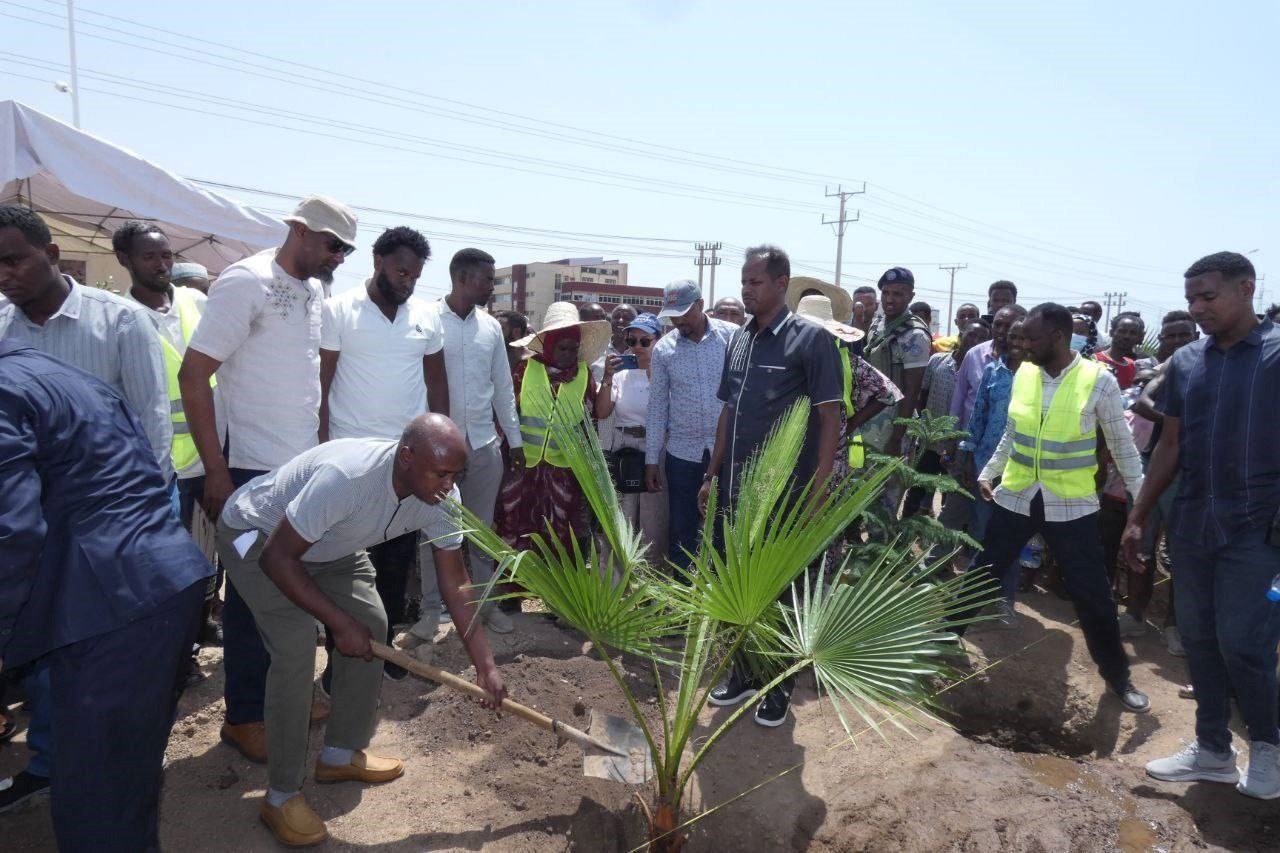 The SUNCASA Project has launched an urban tree planting program in Dire Dawa city, with financial support from the Government of Canada.
The SUNCASA Project has launched an urban tree planting program in Dire Dawa city, with financial support from the Government of Canada.
Haramaya University and the Harerghe Catholic Secretariat are partnering to implement the project, which aims to enhance the city’s green spaces through the planting of 12,500 trees of various species.
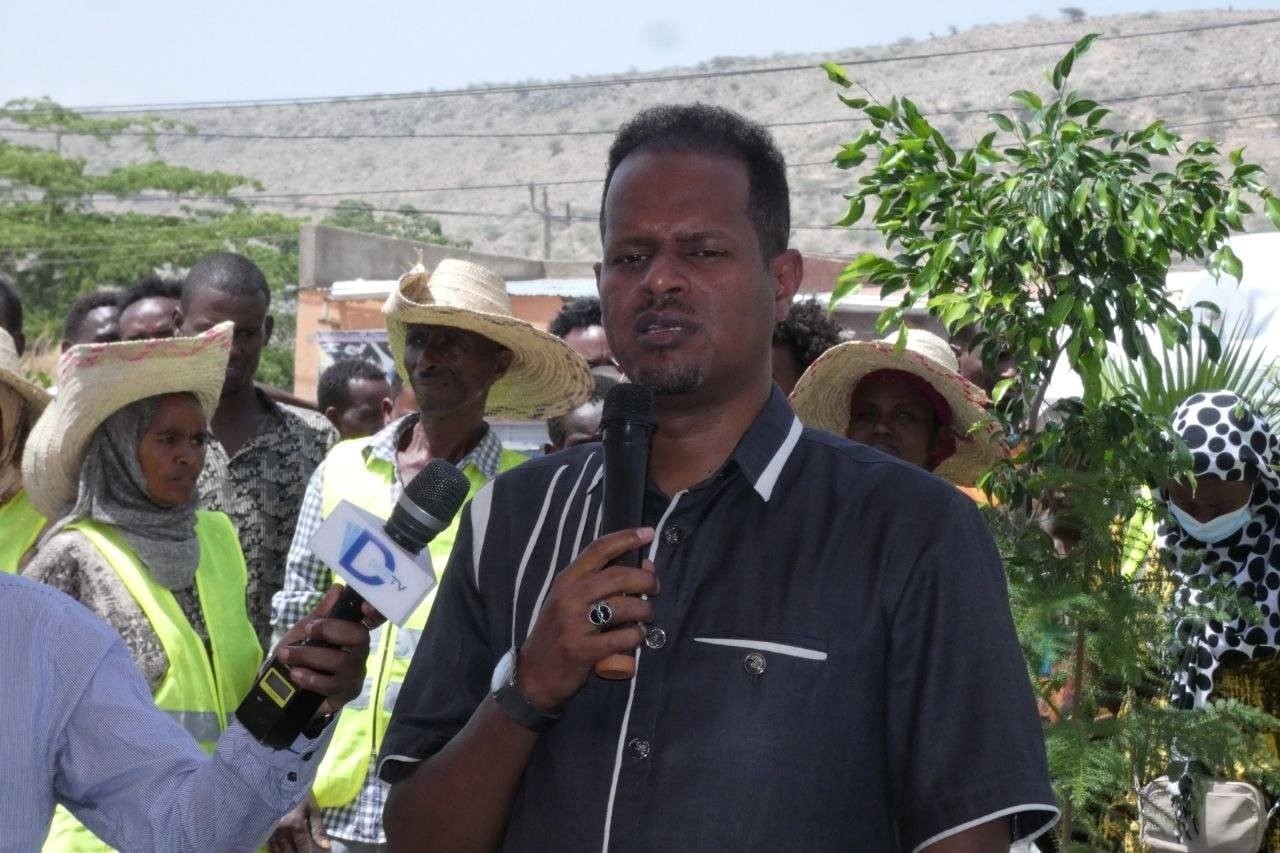 During the launch, Dire Dawa City Administration Mayor Kedir Juhar highlighted the project’s integrated approach to flood prevention, including research, corridor development, park design, and tree planting along corridors and roadsides. Mayor Kedir emphasized the importance of stakeholder and community participation in the project’s success.
During the launch, Dire Dawa City Administration Mayor Kedir Juhar highlighted the project’s integrated approach to flood prevention, including research, corridor development, park design, and tree planting along corridors and roadsides. Mayor Kedir emphasized the importance of stakeholder and community participation in the project’s success.
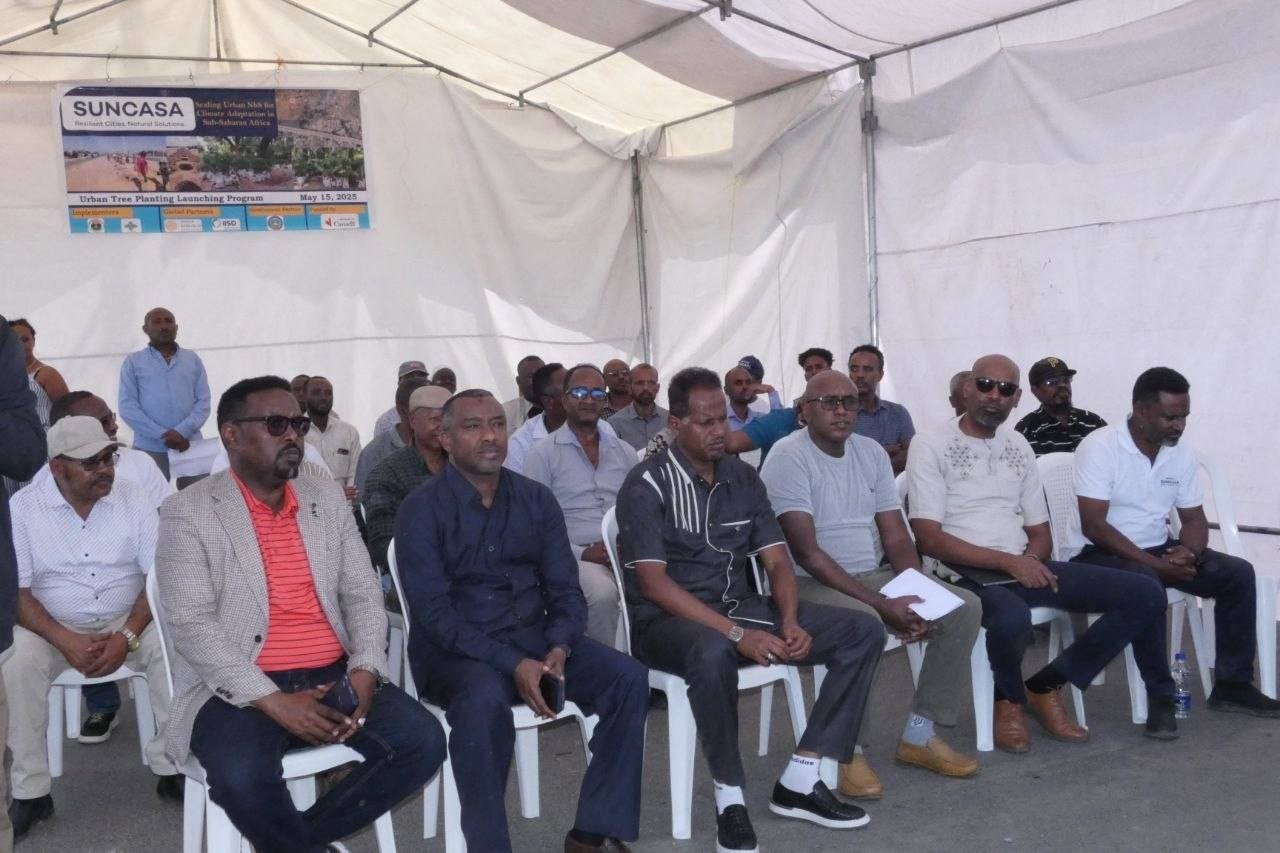 “The Dechatu River Basin Urban Green Development Project aims to mitigate the city’s temperature and prevent future flood disasters,” Mayor Juhar stated. “This initiative will create a more comfortable and sustainable environment for our residents. I urge all residents to take ownership in protecting the newly planted seedlings in their respective areas.”
“The Dechatu River Basin Urban Green Development Project aims to mitigate the city’s temperature and prevent future flood disasters,” Mayor Juhar stated. “This initiative will create a more comfortable and sustainable environment for our residents. I urge all residents to take ownership in protecting the newly planted seedlings in their respective areas.”
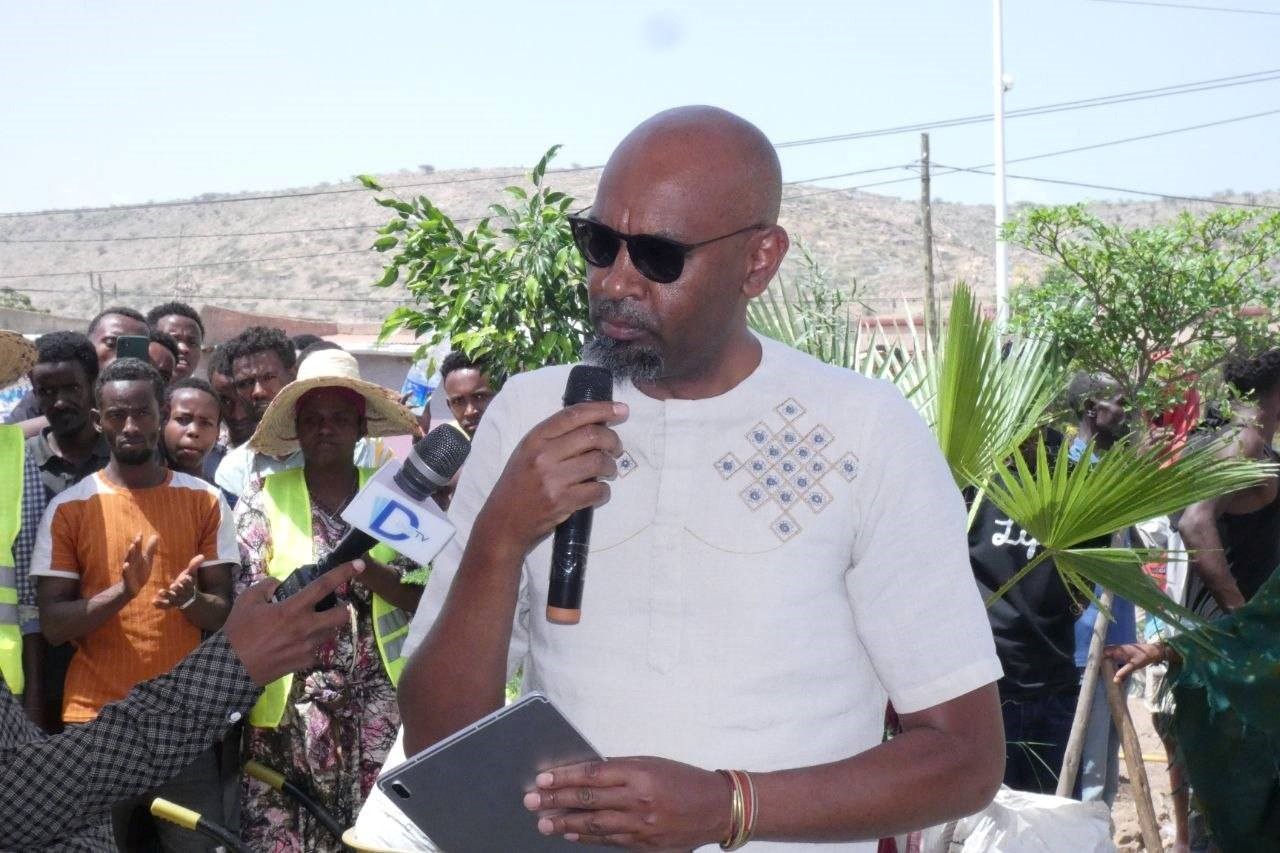 Dr. Aklilu Fikresellasie, Africa and Ethiopia Representative at the World Resources Institute, noted the collaborative effort between the Dire Dawa administration, the Hararghe Catholic Secretariat, and Haramaya University. “By working together, we are making significant strides in protecting Dire Dawa from flooding and reducing urban heat,” said Dr. Aklilu.
Dr. Aklilu Fikresellasie, Africa and Ethiopia Representative at the World Resources Institute, noted the collaborative effort between the Dire Dawa administration, the Hararghe Catholic Secretariat, and Haramaya University. “By working together, we are making significant strides in protecting Dire Dawa from flooding and reducing urban heat,” said Dr. Aklilu.
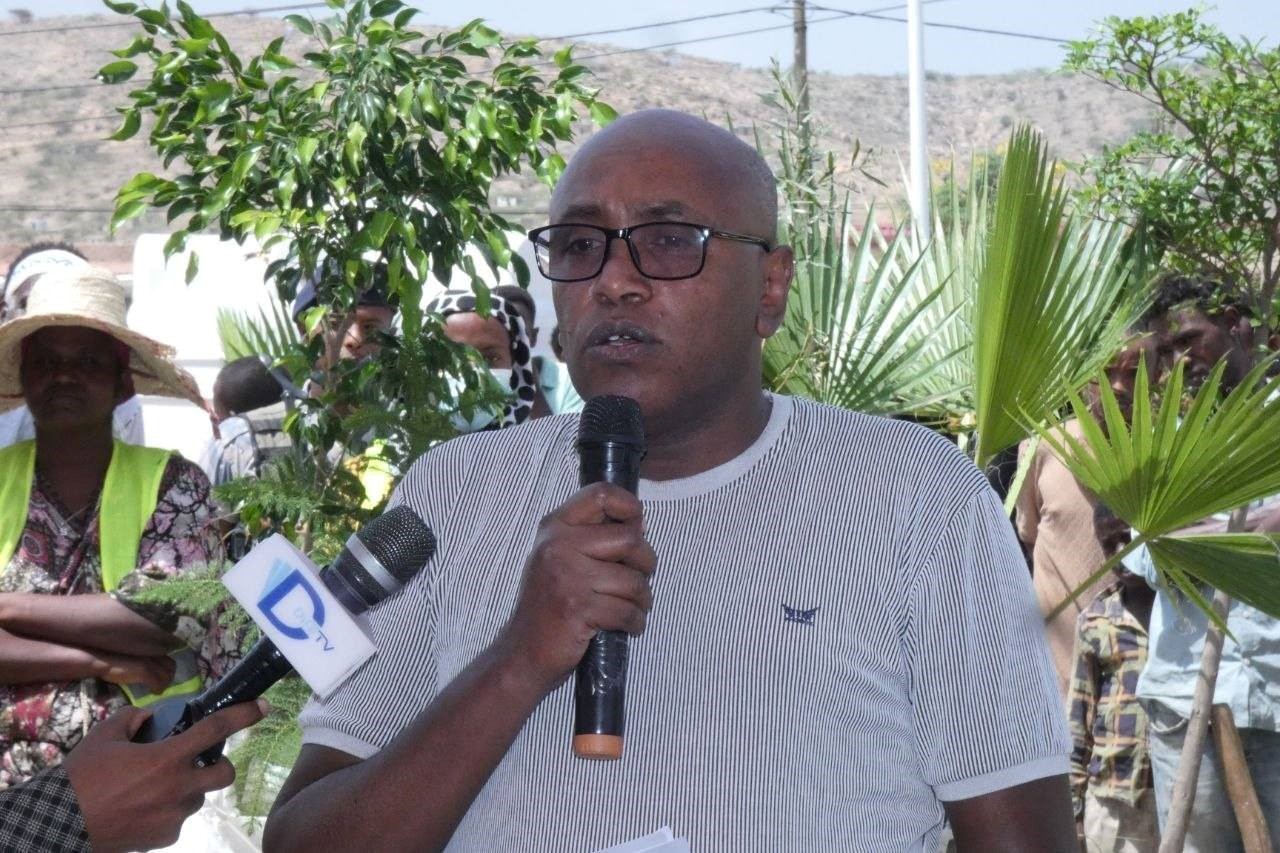 Dr. Yisahak Yusuf, Vice President of Research and Community Engagement at Haramaya University, emphasized Dire Dawa’s vulnerability to climate change.
Dr. Yisahak Yusuf, Vice President of Research and Community Engagement at Haramaya University, emphasized Dire Dawa’s vulnerability to climate change.
“Haramaya University is providing scientific expertise, developing key documents, and securing funding to support the implementation of the SUNCASA project,” Dr. Yisahak explained. “We are committed to working with our partners to address the challenges in the Dechatu River basin.”
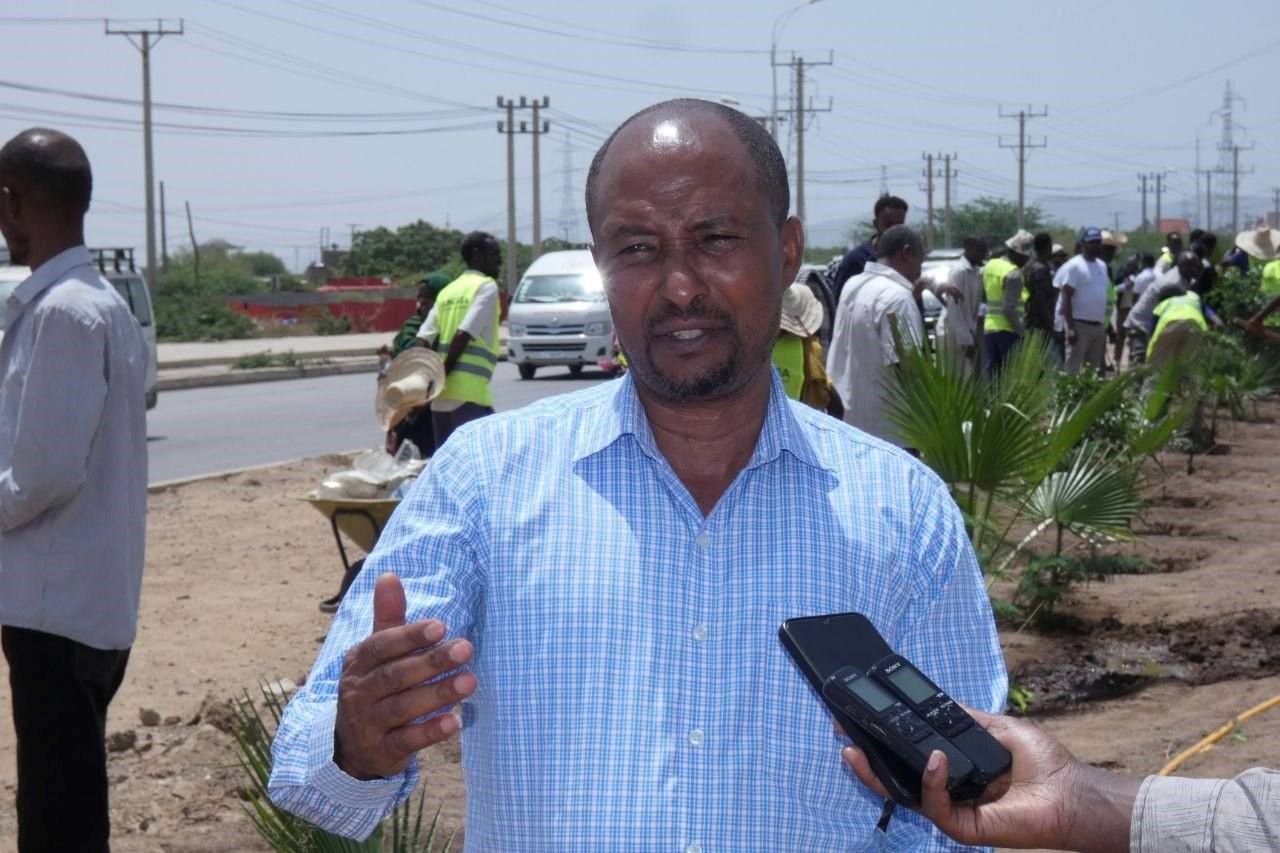 Dr. Kibebew Kibret, a researcher at the College of Agriculture and Environmental Sciences at Haramaya University and the project’s deputy coordinator, outlined the project’s key objectives. “Our primary goals are to prevent flooding, mitigate heat waves, and improve groundwater levels in the Dechatu River basin, an area that faces a high risk of flooding. The project is also creating job opportunities and providing benefits to local residents.”
Dr. Kibebew Kibret, a researcher at the College of Agriculture and Environmental Sciences at Haramaya University and the project’s deputy coordinator, outlined the project’s key objectives. “Our primary goals are to prevent flooding, mitigate heat waves, and improve groundwater levels in the Dechatu River basin, an area that faces a high risk of flooding. The project is also creating job opportunities and providing benefits to local residents.”
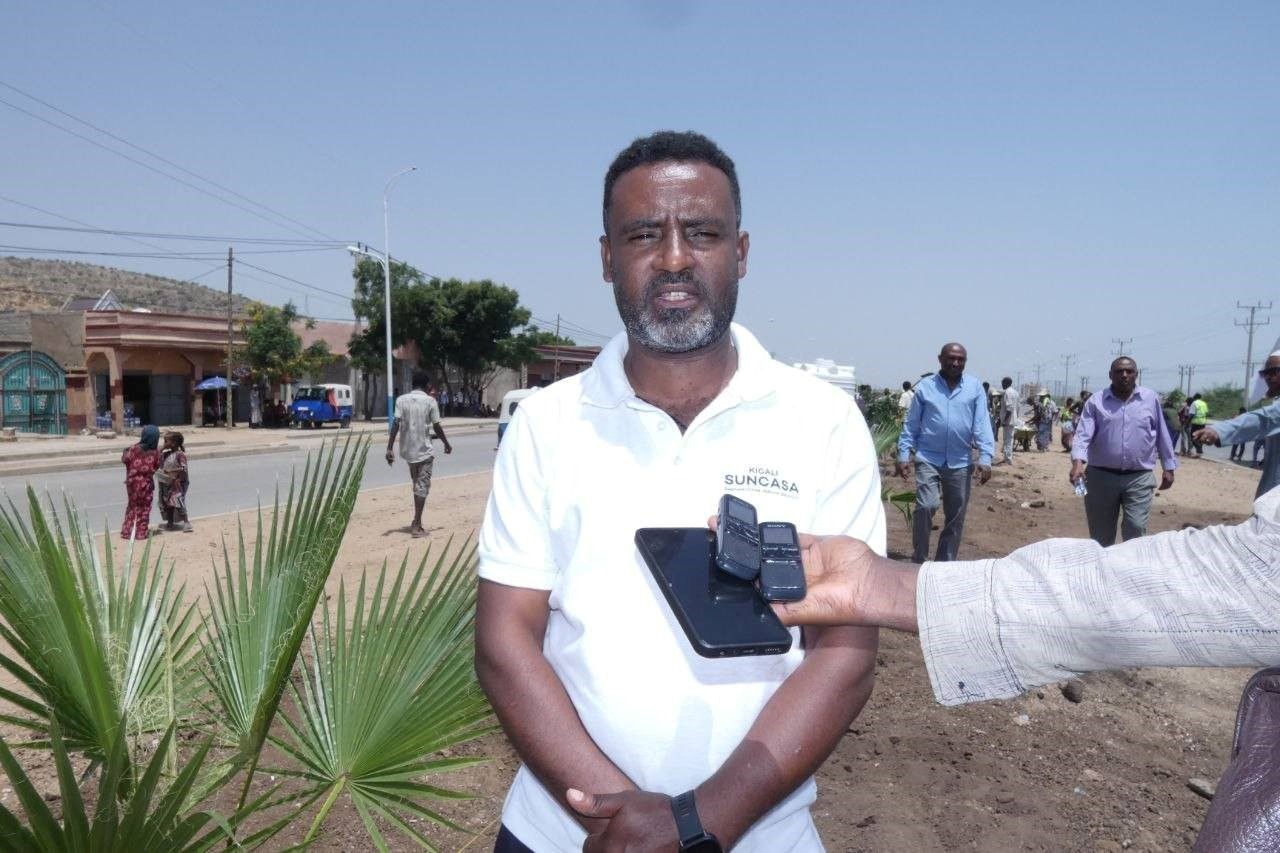 Ato Alemakef Tasew, the World Resources Institute’s Dire Dawa project coordinator for SUNCASA, acknowledged Haramaya University’s crucial role in the project’s development. “Haramaya University has been instrumental from the initial conceptualization of this project to securing its funding. This project will bring significant benefits to many citizens.”
Ato Alemakef Tasew, the World Resources Institute’s Dire Dawa project coordinator for SUNCASA, acknowledged Haramaya University’s crucial role in the project’s development. “Haramaya University has been instrumental from the initial conceptualization of this project to securing its funding. This project will bring significant benefits to many citizens.”
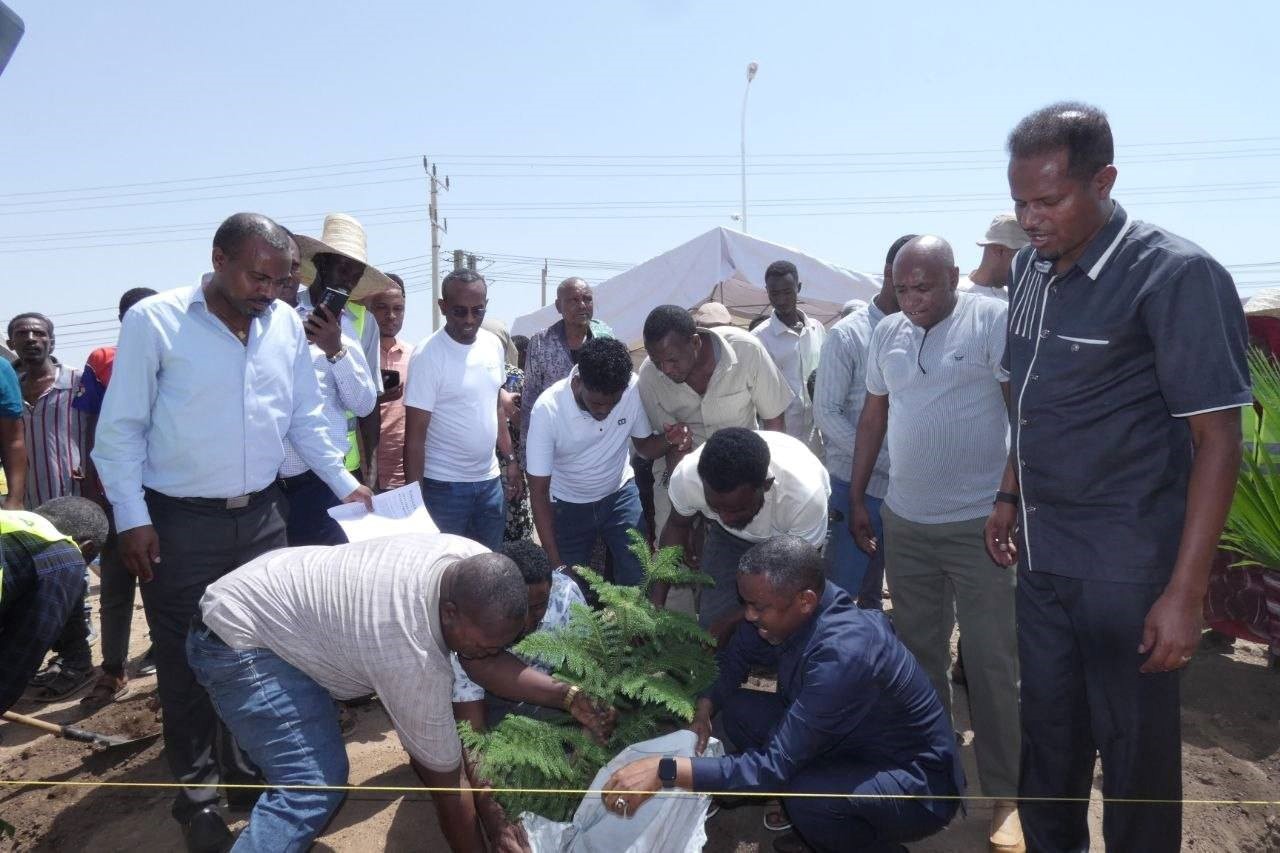 Local residents employed by the project have expressed their satisfaction with the initiative. “This project has not only created job opportunities but has also improved our livelihoods,” said one resident. “We are committed to ensuring the success of this project by taking care of the planted seedlings and working towards a better climate for our community.”
Local residents employed by the project have expressed their satisfaction with the initiative. “This project has not only created job opportunities but has also improved our livelihoods,” said one resident. “We are committed to ensuring the success of this project by taking care of the planted seedlings and working towards a better climate for our community.”
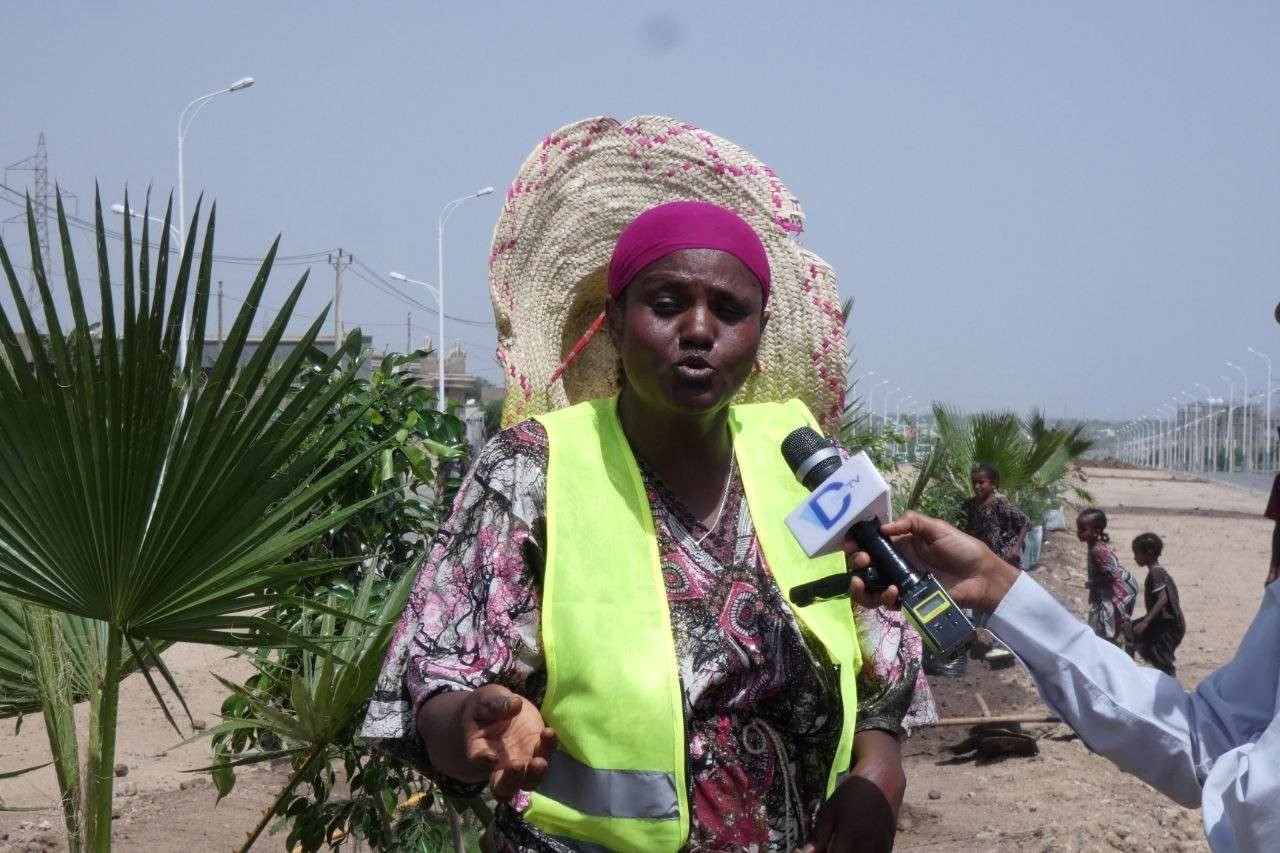 Ms. Rumia Mohammed, a resident of Halo Village in Woreda 02, shared her positive experience. “This project has greatly benefited me, and I am very happy to be involved. I am ready to fulfill my responsibility by caring for the seedlings that have been planted and those that will be planted in the future.”
Ms. Rumia Mohammed, a resident of Halo Village in Woreda 02, shared her positive experience. “This project has greatly benefited me, and I am very happy to be involved. I am ready to fulfill my responsibility by caring for the seedlings that have been planted and those that will be planted in the future.”
Reporter: Shemesdin Mohammed
Photographer: Tewodros Lishan
